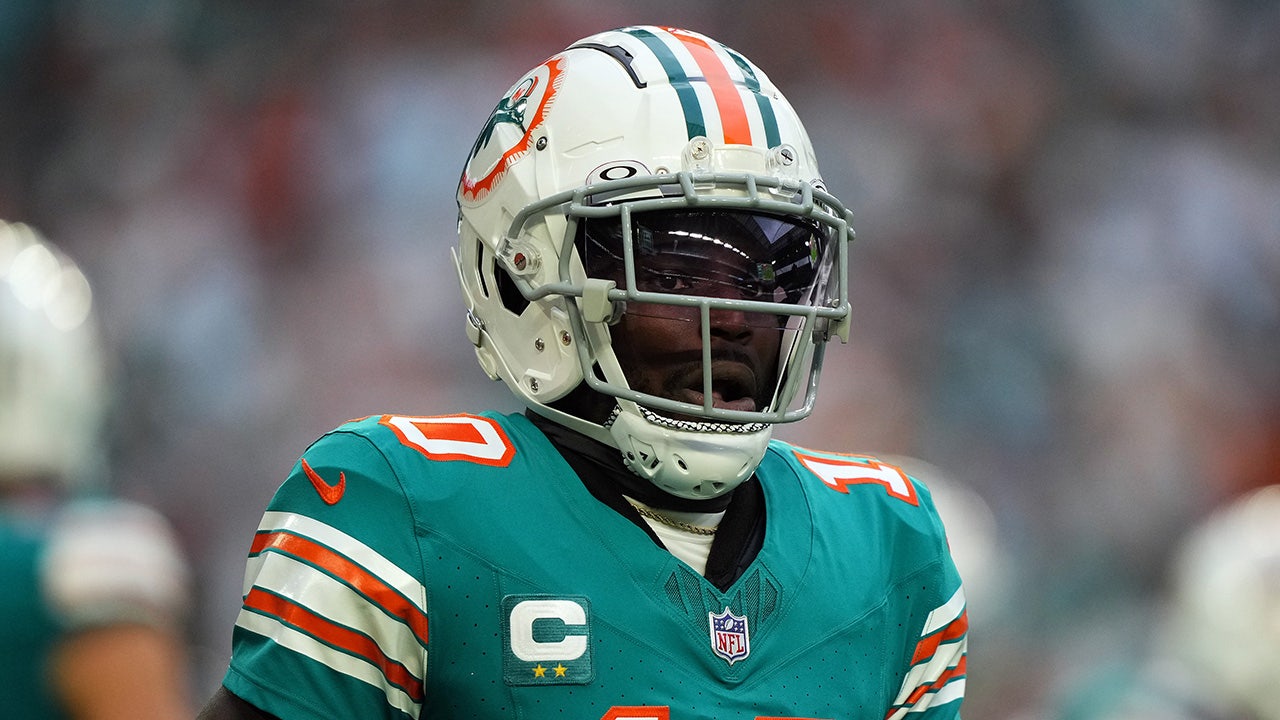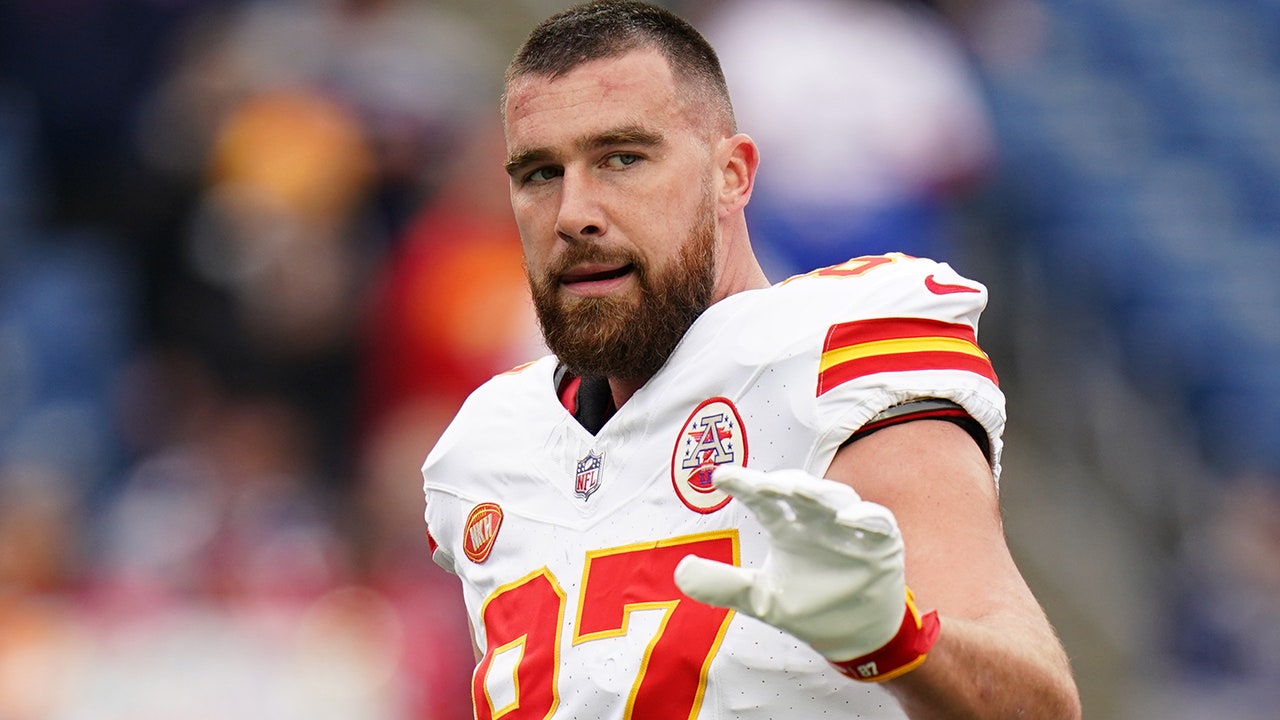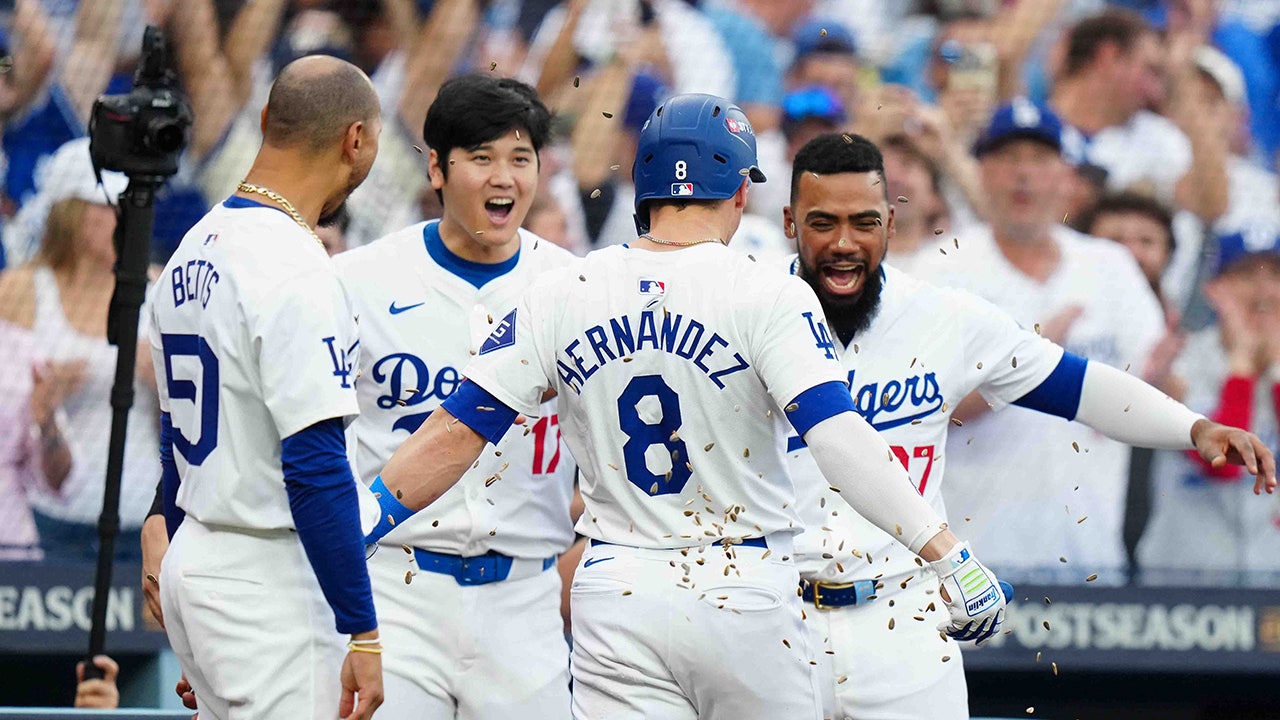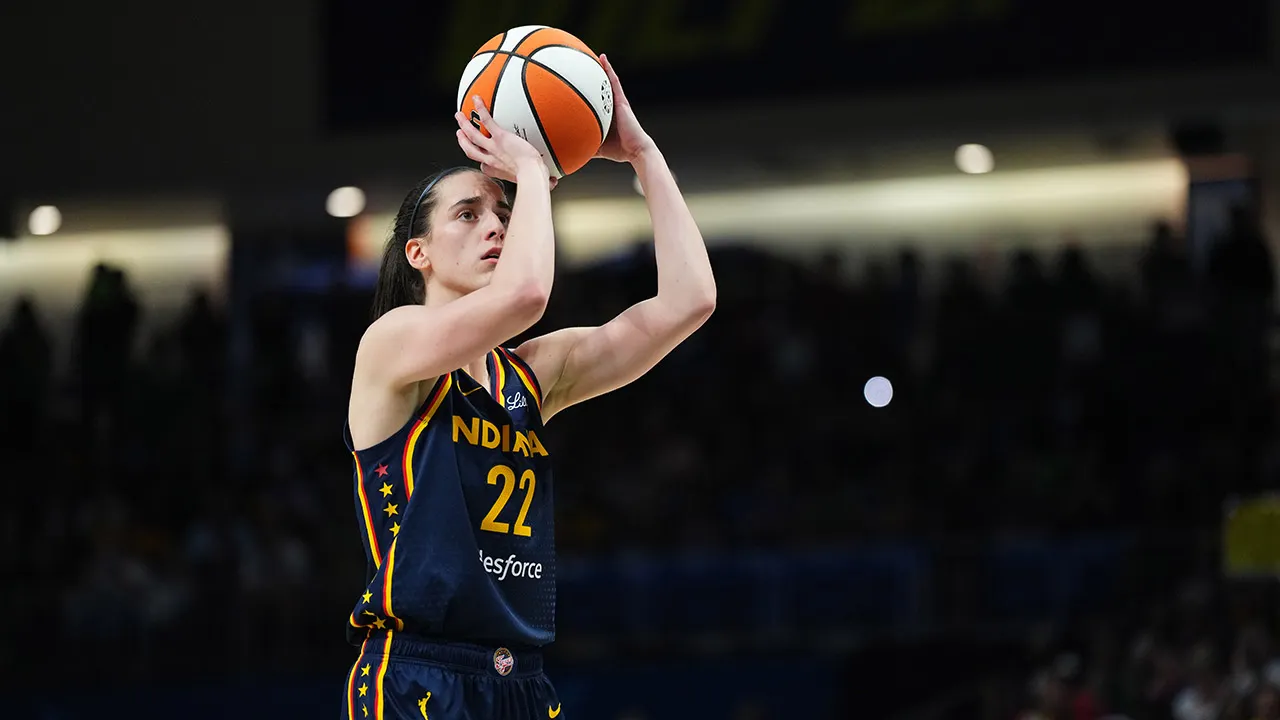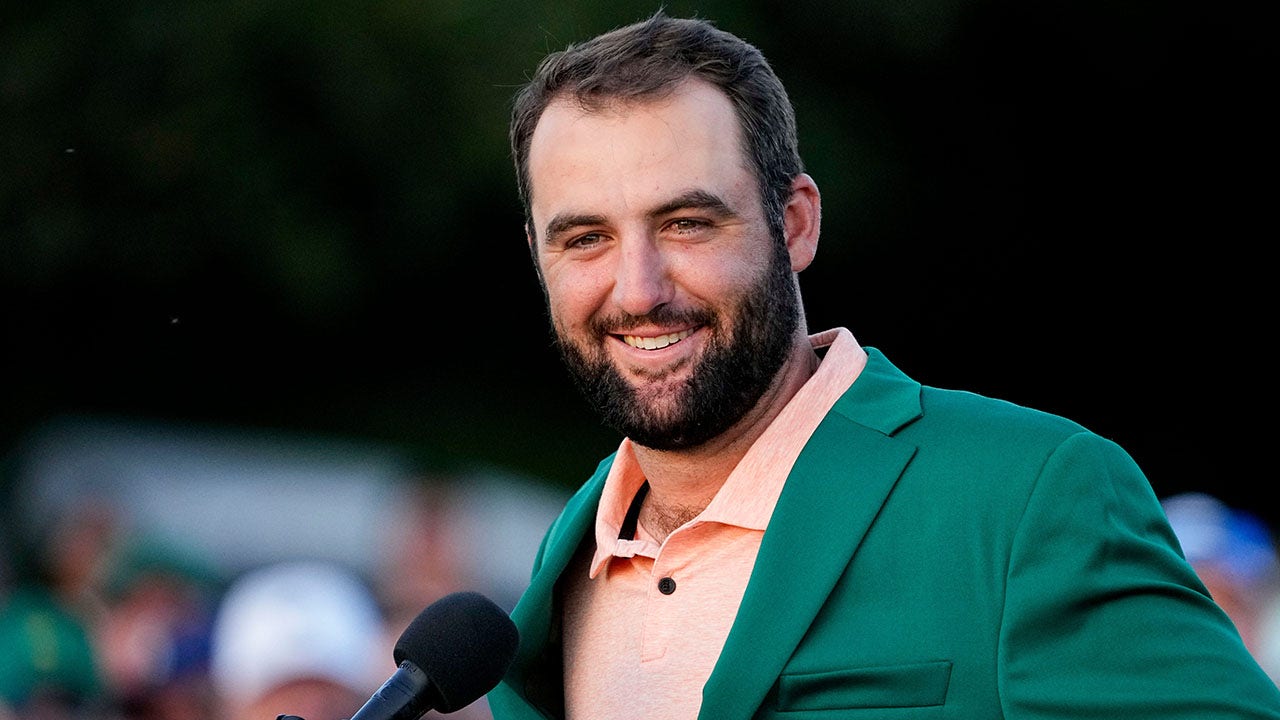OAKLAND — The quarterback wasn’t there. No mention of his name across two hours. Maybe there was no need.
The mere prospect of a pairing had already served its purpose — driving news cycles, stirring speculation, drumming up intrigue around a longshot bid for the White House by an outsider intent on defying political norms. But Aaron Rodgers running for Vice President of the United States?
This not only defied political norms, it strained credulity.
It was all but impossible to envision Rodgers balancing the rigors of his day job as quarterback of the New York Jets with a high-stakes political campaign, particularly this fall, when the heart of the NFL’s regular season collides directly with Election Day. Still, Robert F. Kennedy Jr., independent candidate for president and a member of America’s most famous political family, insisted earlier this month that Rodgers, a friend of his, was among those at the top of his list of potential running mates.
Rodgers never publicly denied or dismissed his candidacy — he “welcomed the overture,” according to The New York Times — furthering, for a few days at least, the notion that a 40-year-old NFL quarterback and future Pro Football Hall of Famer could take a break from shouldering the hopes of the Jets’ season to travel across the country and campaign, meet with voters and perhaps even participate in a vice presidential debate. Or, somehow, do both simultaneously.
The prospect of a Kennedy-Rodgers ticket — scant as it was from the beginning — was officially put to rest Tuesday in Oakland, where Kennedy named lawyer and philanthropist Nicole Shanahan his running mate. Shanahan, formerly married to Google co-founder Sergey Brin, is a new face in the political arena. She recently provided $4 million to help pay for a Kennedy ad that aired during the Super Bowl.
Rodgers fit the mold Kennedy was seeking out. “Our appeal is to young people,” Kennedy said in a recent interview, and Rodgers “is battle-tested because he’s been hammered by the press” for his “skepticism towards authority.”
It’s debatable how much juice Rodgers would have added to Kennedy’s candidacy. In a few short years, he’s become among the most polarizing figures in sports, and even some of Kennedy’s most ardent backers, some of whom shuffled into the Henry J. Kaiser Center for the Arts on Tuesday for the announcement, weren’t buying the notion that Rodgers was ever a serious candidate for VP.
“A publicity stunt,” Zack Nelson called it. The 26-year-old business owner from Seattle flew down for the event and said he has donated heavily to Kennedy’s campaign, citing Kennedy’s embrace of cryptocurrency. “All you have to do is say ‘Aaron Rodgers might be our VP’ and people will bite,” Nelson continued. “I think it was a really smart PR play to get attention. And it worked.”
From a nearby seat, Ryan Sarnataro, a 72-year-old who drove 85 miles in from Santa Cruz Tuesday, said the potential of Rodgers joining the ticket left him wholly unimpressed. “I’m not crazy about people with no qualifications being a heartbeat from the presidency,” he said.
Trip Derham, a native New Yorker, never took it seriously. “Didn’t believe it,” he said. “It’d just be a lot. It’d throw so much confusion into the race.”
Some, like Nicole Fuller, a lifelong Bay Area resident, seemed stunned to learn that Rodgers was even a candidate for the job. “I didn’t know he was being considered — I had no clue,” she said. “But maybe he would’ve brought in that popular feel to this, almost like Taylor Swift? We might need it. We’re kind of hoping for a miracle here.”

A supporter cheers during Robert F. Kennedy’s event announcing Nicole Shanahan as his running mate on Tuesday. (Josh Edelson / AFP via Getty Images)
Sue Peters, a neuroscientist from New York who flew in for Tuesday’s announcement, held no reservations about any of Kennedy’s potential running mates, including Rodgers. “I trust (Kennedy),” she said. “I felt like (former president Donald) Trump broke the mold and opened the path for Bobby to run for president as someone who doesn’t have a history in politics. I don’t think a vice president needs to have a history in politics, either.”
One Kennedy backer — who admitted he was new to politics — snuck away from his spot backstage before the announcement to grab a few “KENNEDY 24” hats in the lobby. For a few moments, he stood and scanned the life-sized murals that decorated the entrance, a collage of pictures spanning Kennedy’s life. One showed the candidate, maybe 4 or 5 years old, cradled in his father’s arms. Before Tuesday, Metta World Peace (formerly Ron Artest) didn’t know Robert F. Kennedy Sr. was making his own presidential run when he was assassinated in 1968.
Like Rodgers, the 20-year NBA veteran and former champ has become friendly with Kennedy over the past year. He flew in from Los Angeles Tuesday morning to show his support, speaking three times at the podium, revving up the crowd before Kennedy and Shanahan took the stage.
Asked about Rodgers, whom he doesn’t know personally, World Peace weighed the possibility of a professional athlete running for vice president during the middle of a season. “Man, that would’ve been really interesting,” he finally said. “And really cool.”
How did we get here, a world in which a star-quarterback-turned-part-time-provocateur ends up on the VP shortlist of a candidate who happens to be John F. Kennedy’s nephew?
Something has shifted for Rodgers over the past few years, at least publicly: he’s lost interest in biting his tongue or in offering up the canned soundbites so many professional athletes — especially franchise quarterbacks — lean on when pressed in front of microphones or cameras. The way Rodgers has put it: he simply grew tired of sitting back, staying quiet and allowing others to shape the narrative around him.
He wanted his say.
Rodgers has repeatedly courted controversy — at times seemingly welcoming, even relishing the firestorm that ensues; in other moments growing frustrated at how he believes he’s being portrayed. He’s dabbled in conspiracy theories on “The Pat McAfee Show,” a cozy pulpit where Rodgers knows he won’t be challenged by the hosts.
Not even if, as happened in January, Rodgers falsely alleged that TV host Jimmy Kimmel’s name could be among those revealed in court documents linked to convicted sex trafficker Jeffrey Epstein. Kimmel threatened to sue. Rodgers tried to walk back the comments but never apologized.
“I’m not calling him (a pedophile) and neither should you,” Rodgers said on McAfee’s show later. “Let me make that crystal clear. I don’t take any excitement or joy out of anybody doing that. So don’t do that in my name. Don’t do that at all. Those are serious accusations meant for people who are on that list.”
He recently went on X to deny a CNN report that he had shared conspiracy theories about the Sandy Hook massacre, his only public comments since he was reported as a potential running mate of Kennedy’s, whom he’s said he’ll support this fall if Kennedy reaches the ballot. Like Kennedy, Rodgers has repeatedly expressed a skepticism toward vaccines, at one point mocking Travis Kelce as “Mr. Pfizer” after the Chiefs All-Pro tight end starred in a commercial advocating for COVID and flu vaccines. Rodgers later challenged Kelce and Dr. Anthony Fauci to join him and Kennedy for a debate on the topic.
Rodgers misled reporters about his own vaccine status before the 2020 season and later tested positive for COVID. He was fined by the Packers for not following league protocols. “I realize I’m in the crosshairs of the woke mob right now,” he said on McAfee’s show soon thereafter, “so before my final nail gets put in my cancel culture casket, I think I would like to set the record straight on so many of the blatant lies that are out there about somebody who’s a critical thinker.”
It’s what Rodgers often calls himself.
“I’m not, you know, some sort of anti-vax flat-earther,” he told McAfee in 2020. “I am somebody who is a critical thinker.”
Rodgers has said his outspokenness has cost him friends, teammates and sponsors. Turbulence has trailed him like a shadow, both on the field and off. There was his messy, years-long divorce with the Packers last spring, which led him to New York, where he was welcomed as a savior. His first season with the Jets ended in the first quarter of the first game. The team stumbled.

GO DEEPER
Aaron Rodgers, Robert Saleh and how the Jets’ season fell apart: ‘Something has to change’
On a recent appearance on Joe Rogan’s podcast, Rodgers pointed out that he’s “less revered now” than he was a few years ago. The conversation then shifted back to the COVID controversy. “You stand for something, you stand courageously for what you believe in, or the opposite side of that is saying nothing and being a coward,” Rodgers said. “I wasn’t willing to do that.
“I don’t want what I went through to get brushed over,” he continued. “Also, I don’t give a f—. I’ve been able to make a ton of money playing a sport I’m really good at, and I’m thankful for that. I have a platform. Some people want you to shut up and throw a football, and that’s fine, but I think there has to be a certain voice of reason …”
That’s what attracted Kennedy to Rodgers in the first place.
“Aaron Rodgers’ instinct to choose service to others over his own financial interest, his commitment to America’s physical and mental health, his work to legalize treatments of veterans and trauma survivors with psychedelic therapies, and his consistent record of keeping the courage of his convictions inspire and move me,” Amaryllis Fox, Kennedy’s campaign manager, wrote on X earlier this month.
Fitting, then, that when The New York Times broke the story that he was among Kennedy’s top choices for VP, Rodgers was in Costa Rica on his annual ayahuasca retreat.
There’s no evidence the Jets knew this was a possibility. One can only imagine how swiftly jaws hit the floor in the team’s facility when “Rodgers being considered for Kennedy’s VP pick” scrolled across the ticker. At this week’s NFL league meetings in Orlando — before Kennedy officially ruled Rodgers out by naming Shanahan his running mate — the team’s top executives seemed to downplay the possibility that their star quarterback was considering a short-term, longshot venture into politics.
“I didn’t take (it) very seriously,” general manager Joe Douglas said.
Did Rodgers reach out to the team at all, informing them that he and Kennedy have spoken?
“He didn’t have to,” coach Robert Saleh said.
Football, then. Douglas has spent the bulk of his offseason capital shoring up the Jets’ leaky offensive line, which, in part, led to Rodgers’ untimely Achilles injury last September. “I hope he feels like he has some candidates for Director of Homeland Security (and) Secretary of the Defense now that we’ve fortified the o-line,” the GM joked.
Rodgers, owner Woody Johnson professed, is “roaring to go,” and is on schedule to return.
That’s good for the Jets. They’ve dodged one distraction. But knowing this quarterback, more are on the way.
Zack Rosenblatt contributed to this report.
(Photo of Rodgers: Ryan Kang / Getty Images)

